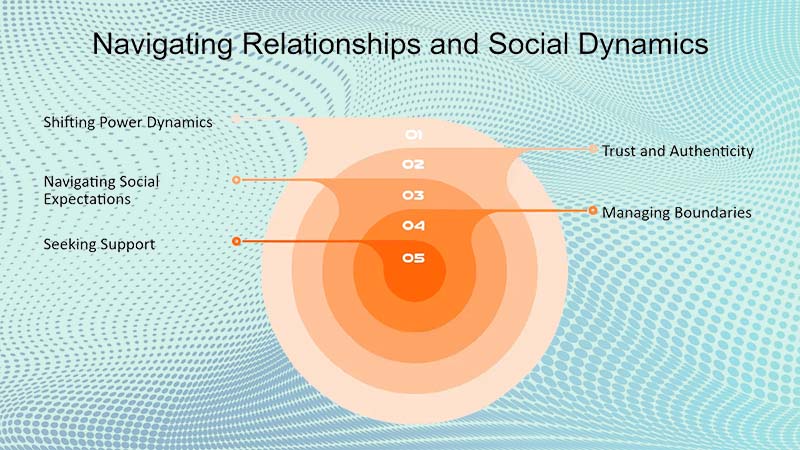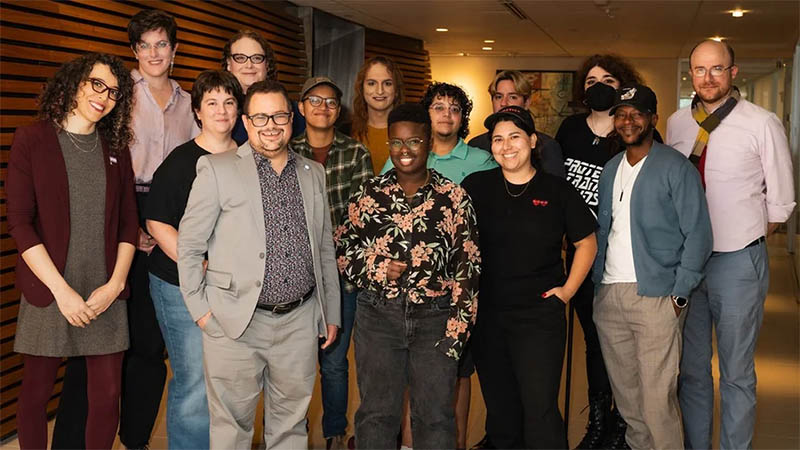Navigating Social Dynamics: An FTM Perspective

Transitioning is not an easy process since it comprises physical, psychological, and social changes, particularly, from female to male. If you look around you may find that most of the trans men concurrence with most people that social issues are among the most painful aspects that anyone has to deal with during their transition. This article provides guidance and recommendations on issues to do with social transition, dynamics of interpersonal interactions, and how to go about training people to appreciate change.
The Social Aspect of Transitioning
Some social aspects of transitioning are:
- Coming Out

One of the main social aspects is based on properly communicating your transitioning journey to an FTM individual to friends, family members, partners, and colleagues. You should also know that it can be quite rigorous, as it requires time, place, and social setting assessment and possibly other people’s reaction assessment. It is crucial to anticipate different reactions towards your sexual orientation as it will help to cope with psychological problems, like depression and anxiety.
- Changing Social Roles
Changing social roles may involve unlearning all prior social signals from your gender to embrace a new gender that reflects the features of the newly assumed self-absorbed identity.
Examples include the case of a male in relation to the community or society’s expectation that another male finds such behavior acceptable or preferable. Thus, knowing your gender is more like finding a comfortable position and it is a lifelong process rather than a singular accomplishment.

Some social changes may also be in relation to physical appearance in public domains, mainly having to do with the dress code. As you transition you may find yourself cutting your hair to match the male gender you identify yourself with.
- Legal and Medical Transitions

Changing your legal name while navigating through the social dynamics is a social aspect of transitioning. When you decide to change your legal name make sure you follow the correct procedures required by the law depending on your country’s policies and rules. Also, you may choose to undergo medical transition which entails various processes such as hormone treatment and surgical procedures. Therefore, before going through the process make sure you have conducted your research and settled for a procedure that has more advantages than disadvantages.
- Dealing with Misgendering

Some people work and are mistreated by colleagues or managers who refuse to address them by the correct pronoun. Hence, there is a need to reason through how to engage in misgendering, mainly when it is appropriate to correct it politely and when it is relevant to challenge it. Make sure that instead of assuming, make sure you are telling the people you encounter in different socials of life your preferred pronouns.
- Social Anxiety

Change triggers social stress due to the belief that you will be rejected by society or the close ones. This anxiety can be neutralized by building faith in your position and searching for conditions that would save you from eventual assimilation. You can similarly get assistance on how to come out of social anxiety through counseling and group sessions.
- Finding Community

Another problem you could face during the change process is the lack of people who relate to the self. Volunteering, being proactive in the community, or helping other people would assist you in making new friends or ease your loneliness. They exist online or locally, meaning you can join the support groups to find people to talk to. Your community can help you find an appropriate outfit to express your gender and the possible packing, tucking, and binding techniques.
The interaction aspect reveals that the process of transitional change significantly affects personal relationships.
Here are various ways you can navigate personal relationships:
- Family Dynamics

The most difficult of the steps is coming out to family members. When engaging the family members in such discussions, you should do it slowly because they may take time to accept the change. Some ways to ease this change include offering educational literature to the personnel and being willing to answer their questions more often.
- Romantic Relationships

Transitioning also makes a romantic relationship rigid since you have to change the form of a relationship, whether to start a new relationship or change the existing one. Therefore, you should openly and honestly discuss the requisites and territorial lines in any relationship you intend to have. It is also helpful to look for companions who will endorse and comprehend all the underlying issues that you are going through.
- Friendships

Friendship dynamics change during transition since some friends support your wishes, while others show little comprehension. But until friends come to terms with your new reality, it is good for you to educate them on your journey so that they may find a way of helping and giving you support. Remember, it is also possible to make new friends from the transgender population to strengthen the overall support system.
- Parental Relationships

If the transition can affect one aspect of life, it can affect interacting with or being a parent to children. This is why, if you are a parent who is transitioning, you should foster an interesting and clear speech that is easily understandable by children on the topic of sexual orientation to explain the changes. The same goes for encouragement from co-parents and other family members to make such changes.
- Loss and Grief

However, it is sad that only some relationships can withstand the transition process. You can only expect to feel the loss and grief over those kinds of relationships. Talking to friends, counselors, or support groups will go a long way in dealing with these feelings and coming to terms.
As an FTM individual, you may find transitioning a problematic issue to deal with, making it hard to express yourself in the workplace.
Here are ways to navigate professional relationships:
- Coming Out at Work

Coming out at work is always a big decision. Therefore, you should read the guidelines and the discrimination and transgender policy of the company to follow these policies, and possibly the idea of starting the conversation can involve speaking to the HR representative or the immediate superior. Also, ensure you educate your colleagues on the suitable pronoun you wish them to address you so that you may feel your presence matters.
- Handling Discrimination
While navigating through professional relationships, you should also understand that you can find prejudice and sexual harassment in the workplace. It is thus essential to familiarize yourself with the rights and ways of handling discrimination. Writing down the events and reporting them to HR or legal departments can offer you safety and legal action against the aggressor.
- Building Professional Relationships

Transitioning can bring changes to the working relationship with other co-workers. Communication with boundaries and knowing what is reasonable to expect from them and what is not is essential can help you have a smooth relationship at work. You can also look for support on the job by identifying individuals who can help and provide you with the support you need.
- Career Advancement
You may also fear how transitioning might affect your achievement and career advancement at work. For instance, you may fear to apply for a certain position due to fear that individuals may not choose you hence retaining the same position for a long time. Do not be afraid to pursue your career since, as a transgender professional, you can advance in your career. Enrolling for courses that may help you build your career is one of the effective ways you can navigate professional relationships.
- Workplace Policies and Support

Supporting gender-neutral restrooms and diversity training will make it easier for other transgender people to adapt to the working environment by making recommendations that you initiated. You can also create LGBTQ team member resource groups or join organizations to work towards encouraging a positive change in the environment that employees must endure at their workplace.
Building Understanding and Acceptance
While navigating social dynamics, it’s essential to establish civil acceptance, which is when you gain an understanding and tolerance of different segments of society.
You may consider building understanding and acceptance through:
- Education and Awareness

It is vital to strive to enlighten different people regarding the matters relating to transitioning into an FTM individual. The ability to interchange goods, exchange stories, and speak openly can decrease the stigma associated with the process of FTM transitioning and increase people’s understanding.
- Advocacy

Having others join you in speaking out and supporting the rights of trans people can increase the volume and improve reception. Your friends can assist in combating the rights of those with prejudices by countering prejudice in different capacities. It would help if you looked for organizations willing to support transitioning individuals to collaborate with to build understanding and acceptance, even for individuals who are not courageous enough to come out.
- Community Involvement

Participating in representing the organizations and attending the events can benefit acceptance, creating inclusivity within your social environment. Volunteering, attending pride events, and joining advocates can reduce isolation and provide opportunities for support, hence building understanding and acceptance.
Conclusion
Managing social relations as an FTM person relates to the interactions with others in private lives, at workplaces, and within communal settings. These elements leave you vulnerable to facing various forms of prejudice in your journey. By realizing and combating every aspect of transitioning and relationship construction and acceptance, you are better positioned to deal with many of the challenges you may encounter during transitioning. You need to know that you should not walk through the journey alone, since there are always people out there who are willing to offer their support and protect you through your journey.

 Basic Packers
Basic Packers Pack & Play
Pack & Play STP
STP